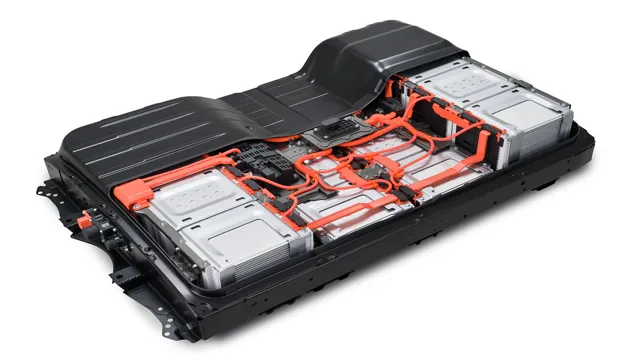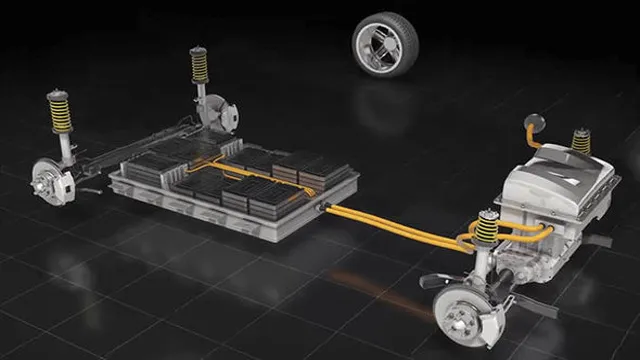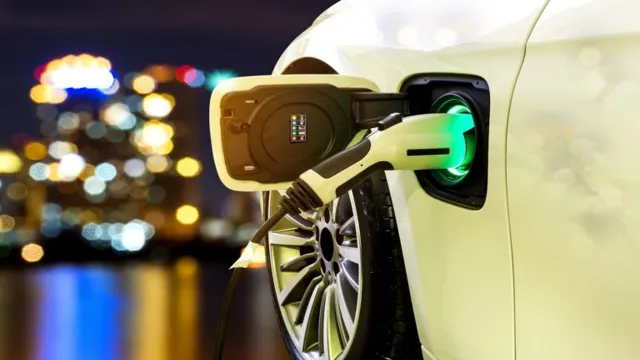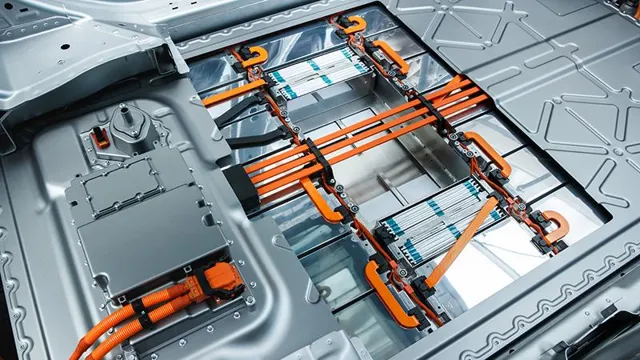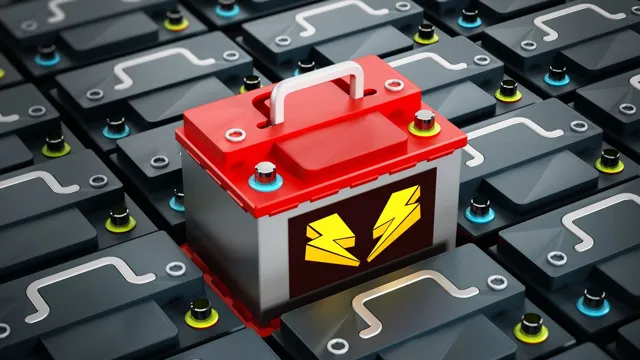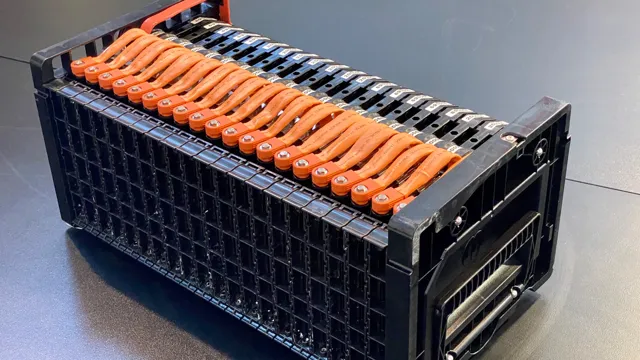Revolutionizing the Road: Discover the Latest Breakthroughs in Electric Car Battery Technology
Electric cars have been gaining popularity as an alternative to traditional gasoline-fueled vehicles. However, one of the biggest concerns still remains their battery life and the lack of charging infrastructure. Fortunately, there is good news on the horizon – new battery technologies are being developed that could revolutionize the way we think about electric cars.
These advancements promise to provide longer range, faster charging times, and increased safety. One of the most exciting solutions is the solid-state battery, which uses a solid electrolyte instead of the liquid electrolyte found in traditional lithium-ion batteries. This new design could potentially store more energy, be lighter and smaller, and be less expensive to produce.
Other promising new technologies include lithium-sulfur and lithium-air batteries, which also offer increased energy density and longer range per charge. Furthermore, new battery chemistries are being developed that use materials like sodium, zinc, and aluminum instead of lithium, which could help reduce the environmental impact of electric cars. With these advancements, the idea of owning an electric car could soon become a more accessible and sustainable option for many people.
Imagine never having to worry about running out of battery power while on a long road trip or charging your car in just a matter of minutes. These new battery technologies offer a brighter future for both the automotive industry and the planet.
Overview of Current Electric Car Batteries
Electric cars are on the rise, and with it comes the need for new battery technology that can fulfill the demands of drivers. Current electric car batteries have come a long way, yet there continues to be an ongoing search for innovation and progress. Lithium-ion batteries exist as the most common type of battery found in electric cars today.
However, they carry a few flaws such as limited charging time and range. Engineers have been working tirelessly to combat these shortcomings and have developed new cutting-edge technologies. Solid-state batteries are an exciting prospect, which could revolutionize electric cars by increasing the overall range, reducing charging time, and eliminating the risk of fire.
They use a solid electrolyte instead of a liquid, making them safer and more efficient than their liquid counterparts. Other developments include lithium-sulfur and zinc-air batteries. These batteries offer the potential for greater range and performance while also being environmentally friendly.
With these innovations, the future of electric cars is bright, providing a cleaner and more efficient means of transportation, where new heights are just around the corner.
Challenges with Current Battery Tech
Current electric car batteries are undoubtedly more advanced than ever, yet they still have some challenges to overcome. One of the main issues is that they do not have a long enough range, meaning drivers need to constantly recharge. The cost of batteries is also still a significant barrier.
Although there have been some promising advancements in decreasing costs, prices are still prohibitively high for many potential electric car owners. Additionally, with many current battery technologies, energy density remains a challenge. Despite being relatively heavy, lithium-ion batteries only store a limited amount of energy, with most models offering a range of only 100-250 miles per charge.
While these challenges are significant, the good news is that there are ongoing research and development efforts to improve electric car batteries, and we can expect to see significant progress in the near future.
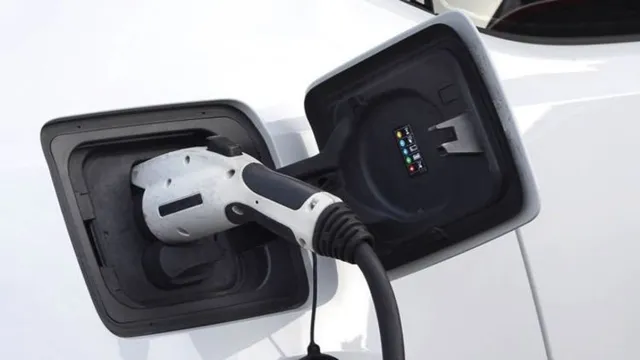
Limitations of Range and Charging Speeds
Electric car batteries have come a long way in recent years, but they still have some limitations when it comes to range and charging speeds. The most common type of battery used in electric cars is the lithium-ion battery, which offers a decent range of around 150-300 miles on a single charge. However, this range can vary depending on factors such as temperature, driving style, and terrain.
Additionally, charging times for electric car batteries are still much longer than filling up a gas tank, and the lack of charging infrastructure in some areas can make it difficult for drivers to find a place to charge up when they need to. Despite these limitations, electric cars are becoming more popular as battery technology continues to improve, and with more charging infrastructure being built out, range anxiety is becoming less of a concern for drivers.
Advances in Battery Technology
Electric cars are becoming more popular as people look for greener and more efficient vehicles. One of the biggest challenges in making electric cars practical is finding a battery that can provide sufficient power and range. Fortunately, advances in battery technology are making this possible.
New battery technologies are being developed that can store more energy and deliver it more efficiently. For example, lithium-sulfur batteries are lighter and cheaper than traditional lithium-ion batteries, and can hold more energy. Solid state batteries are also being developed, which promise to be even more efficient and longer-lasting.
With these advances in battery technology, electric cars are becoming more practical and cost-effective, making them an increasingly attractive choice for consumers.
Solid-State Batteries
Solid-State Batteries Advances in battery technology have led to the development of solid-state batteries, which have the potential to revolutionize energy storage. Unlike traditional lithium-ion batteries that use flammable liquid electrolytes, solid-state batteries use solid or polymer electrolytes to transfer ions between electrodes. This design makes them safer, longer-lasting, and more efficient than conventional batteries.
Solid-state batteries can also hold more charge and charge faster than their predecessors, making them ideal for use in electric vehicles and other energy-intensive applications. While solid-state batteries are still in the development stage, they offer a promising outlook for the future of energy storage. With continued research and investment, these batteries could help eliminate the need for fossil fuels and pave the way for a greener, more sustainable future.
Lithium-Air Batteries
Lithium-air batteries are a promising development in battery technology that could revolutionize the way we power our devices and vehicles. Unlike traditional batteries that rely on chemical reactions within them, lithium-air batteries use air from the environment to create energy. This means that they have a much higher energy density, allowing them to store more energy in a smaller space.
In fact, lithium-air batteries can potentially store up to ten times more energy than traditional lithium-ion batteries, making them incredibly powerful and efficient. Additionally, these batteries are also much lighter, which could make them ideal for use in electric vehicles and other applications that require a lightweight power source. While there are still challenges to overcome before lithium-air batteries become a commercial reality, these advances in battery technology are exciting and could change the way we power our world, reducing our reliance on fossil fuels and other non-renewable sources of energy.
Graphene Batteries
Graphene batteries are one of the latest and most innovative advancements in battery technology. These batteries are made using graphene, a revolutionary material that is 200 times stronger than steel and one of the thinnest materials known to humans. Graphene batteries have a unique structure that allows for faster charging times and longer battery life than traditional lithium-ion batteries.
They are also much safer and more environmentally friendly since they do not contain harmful chemicals. Graphene batteries are being researched as a potential replacement for current battery technology in many different applications, including smartphones, electric vehicles, and even medical implants. With improvements being made every day, it’s only a matter of time before graphene batteries become the norm.
Impacts of New Battery Tech on Electric Cars
Electric cars are on the rise, and a significant factor that impacts their success is the battery technology used. With new battery technology, electric cars can go further, charge faster, and be more sustainable for use. Lithium-ion batteries were an excellent innovation when they were first introduced, but there are new types of batteries like solid-state and lithium-sulfur batteries that are becoming more popular.
Solid-state batteries offer increased safety and a longer lifespan, while lithium-sulfur batteries offer higher energy density, making them a great alternative to lithium-ion batteries. With these new technologies, electric cars can improve their range, charging time, and overall performance, making them more competitive and attractive to consumers. As the demand for sustainable transportation increases, the development of new battery technology will continue to improve and meet the needs of the market.
The electric car market shows no signs of slowing down, and with new battery technology, it will only continue to grow and improve.
Increased Range and Faster Charging
Electric cars have been gaining popularity in recent years due to their eco-friendliness and fuel-efficient capability. With the advancement of battery technology, the impacts on electric cars have been tremendous. The newest battery tech has increased the mileage range, allowing for longer trips without needing to recharge.
Faster charging has also been made possible, reducing the charging time significantly. This means electric car owners can now travel further and faster than before. With the advent of electric cars, the industry has been able to reduce carbon emissions, making it a sustainable option for eco-friendly consumers.
The advancements in battery tech have also made electric cars more practical for everyday use, making them a feasible choice for more people. With innovations still rolling out, the future of electric cars and battery technology looks very promising indeed.
Lower Costs and Environmental Benefits
New battery technology is poised to make electric cars more efficient, affordable, and eco-friendly than ever before. With advancements in lithium-ion batteries, researchers have been able to develop batteries that are cheaper to produce and have better performance. This breakthrough in battery technology has several impacts on electric cars, including increased range and lower costs.
Electric cars with better battery technology can go farther on a single charge, making them more practical for long-distance driving. Additionally, the lower cost of new battery technology means electric cars will be more affordable for consumers, making them a more attractive option for those looking to purchase a new vehicle. Furthermore, using electric cars with improved battery technology can help reduce their environmental impact, as they produce fewer emissions than traditional gasoline-powered cars.
Overall, the advancements in battery technology represent a major step forward for the electric car industry and could help accelerate the switch to cleaner transportation.
Future of Electric Cars with New Battery Tech
Electric cars are rapidly evolving with new battery technology, paving the way for more efficient, eco-friendly, and affordable vehicles than ever before. The latest advancements in battery tech have brought us several promising options, such as solid-state batteries, lithium-air batteries, and metal-air batteries, to name a few. These new batteries have the potential to increase the range of electric cars, reduce charging times, and lower manufacturing costs.
Improved battery technology is a crucial factor in helping electric vehicles become a more feasible option for consumers. As more automakers invest in developing better batteries, it’s only a matter of time before electric cars become the norm on the road. With the help of new battery tech, we can look forward to a future where electric cars are not only practical but also sustainable and stylish choices for the masses.
Conclusion
As electric cars become more popular, the need for improved battery technology has become increasingly important. With the latest advancements in battery technology, electric cars are now able to travel longer distances, recharge more quickly, and operate more efficiently, making them a more viable alternative to traditional gasoline-powered vehicles. This new battery technology not only benefits the environment but also provides a new level of driving experience for consumers, giving them a smoother, quieter, and more powerful ride unlike anything they’ve experienced before.
So, if you’re looking to be on the cutting edge of technology and help save the planet at the same time, an electric car with new battery technology is definitely the way to go!”
FAQs
What is the new battery technology being used in electric cars?
The new battery technology being used in electric cars is lithium-ion batteries.
How do these new batteries compare to older battery technology?
The new lithium-ion batteries have a higher energy density and a longer lifespan compared to older battery technology.
Are electric cars with this new battery technology more expensive than gasoline cars?
Yes, electric cars with the new battery technology are generally more expensive than gasoline cars, although the price is decreasing as the technology becomes more common.
How long does it take to charge an electric car with the new battery technology?
The charging time can vary depending on the specific vehicle and charging station used, but typically it takes several hours to fully charge an electric car with the new battery technology.
